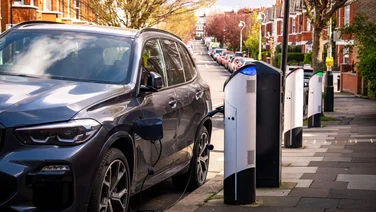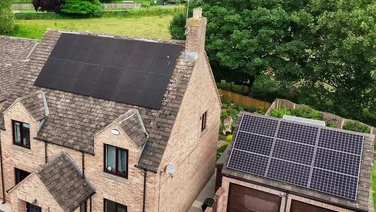We receive a small fee from trusted installers when you request a quote through our site. This helps us keep our content independent, well-researched and up to date – Learn more
- Chancellor Rachel Reeves confirms government remains committed to Warm Homes Plan in Spending Review
- Clean tech and building sectors welcome plan
- Ministers still need to set out roadmap for roll out, and it may cost much more than the current budget

Green groups and industry bodies have welcomed government plans to spend £13.2 billion on the Warm Homes Plan, which it confirmed in the latest Spending Review.
The Warm Homes Plan is a government scheme designed to cut energy bills by offering solar panel and heat pump grants and financial support to upgrade homes with clean energy technology, including heat pumps and solar panels.
In its Spending Review, which Chancellor of the Exchequer Rachel Reeves set out on 11 July, the government said the Warm Homes Plan will “help to cut bills by hundreds of pounds per year for families across the country by upgrading homes through insulation, heating and solar panels”.
Reacting to the news, Stew Horne, group head of sector intelligence and external affairs at the Energy Savings Trust described the announcement as “a significant milestone” and “a pivotal moment for the UK’s energy resilience”, saying that it offered an opportunity to “lower energy demand and build a more secure, stable energy future”.
It also said the government now had the chance to “put right years of disjointed policies around home energy upgrades” but also called upon ministers to set out a roadmap for large-scale roll out to “reduce energy bills and create skilled jobs across the country.
Cutting bills long term
National Energy Action, the UK’s national fuel poverty charity, said the commitment to the Warm Homes Plan would result in “life changing outcomes for the most vulnerable households”.
Adam Scorer, the NEA’s chef executive, said that unaffordable energy bills will only be beaten in the long term through “investment in home energy efficiency”.
“We have the financial commitment; now comes the time to deliver for the most vulnerable households.”
The MCS Foundation also welcomed the news, with Garry Felgate, its chief executive, saying it was “fantastic to see” the government committing to decarbonisation of homes and that it was “an important next step in providing certainty for industry and consumers”, which he said would “aid the roll-out of low carbon technology”.
The Warm Homes Plan, and the broader plan to decarbonise domestic heating, goes hand-in-hand with the government’s homebuilding strategy; it plans to build 1.5 million new homes as part of its Plan for Change.
In the week before the Spending Review, the government announced that new homes will have low carbon technology installed as standard, including solar panels and heat pumps, as part of the Future Homes Standard.
Reacting to the Spending Review, Kate Henderson, chief executive of the National Housing Federation said the commitment to the Warm Homes Plan was “hugely positive”, which she described as “essential to supporting landlords to tackle fuel poverty”.
Is the Warm Homes Plan enough?
While the reaction to the government recommitting to the Warm Homes Plan has been positive, there are also calls to create a detailed plan to ensure low carbon technology is rolled out.
UKGBC, a group representing stakeholders across the building industry said while it was a “real relief” that the government was not backing away from the Warm Homes Plan, getting support from Westminster was only “half the battle”, pointing out that the sum needed to retrofit UK homes was far bigger than the £13.2 billion set out.
Simon McWhirter, chief executive of UKGBC, said the plan needs “a robust national retrofit strategy that empowers local authority delivery and supports households to make energy-saving improvements”.
“As our National Retrofit Investment Calculator shows, the true scale of the challenge demands investment much closer to £60bn over 10 years,” McWhirter said.
“The investment committed must be used to unlock private and household investment, through tax reforms such as shifting levies off electricity, and tools like Warm Homes Stamp Duty or green mortgages.
“The Government has rightly upheld its manifesto pledge; now it must partner with industry to deliver at pace and scale, creating skilled jobs and delivering healthier, warmer homes for millions.”








